One of the biggest tasks for the homeschooling parent is helping children learn reading words, their spellings and definitions. Games are a great way to learn words because they make practice fun and kids love to have fun!

One of the biggest tasks for the homeschooling parent is helping children learn reading words, their spellings and definitions. Games are a great way to learn words because they make practice fun and kids love to have fun! Each time your child encounters a new word, either a sight word or one he can sound out, it should be added to his database of words. The database of reading words is kept in a personal dictionary, which is made by purchasing a notebook for each child and assigning two double-sided pages to each letter of the alphabet, except for these letters, which get 5 double-sided pages each: b, c, m, p, r, s, t. The reading database words are also printed on 3” by 5” cards {7.5 cm. by 12.5 cm.}, one per card. (Choose a different color card for each kid’s reading words or draw a colored line across the top of each card for easy sorting.) The word cards will be used to play the word learning games explained below. It’s also a good idea to have a separate set of the Dolch 220 reading words to use.
Reading Word Games
Around the World
You need at least three [tag-tec]children[/tag-tec] to play this reading word game, more is better. The children and teacher sit around a table. One child gets up and stands behind the child next to him. The teacher shows a word card. The first child who reads it, goes on to stand behind the next child. If the standing child misses the word, he/she takes the seat of the sitting child who moves on and stands behind the next child. When a child reads 10 words in a row, he/she has gone “Around the World.”
Concentration
Make doubles of each reading word card to be used (6-15 pairs is a good amount). Place them face down on a table. Each child in turn attempts to turn over a pair of words. If he/she finds a pair, he/she keeps it. If not, the cards are turned back over. The child who finds a pair must read it in order to keep it and he/she gets another turn. It’s important to try and remember where each word is located on the table. The child with the most pairs of reading words at the end of this reading word game is the winner.
Go Fish
Use 25 pairs of reading word cards. Each child is dealt six cards. The object is to get a pair to lay down. Each child lays down any pairs he/she has after the deal. Then each child in turn may ask one person, “Do you have any __________________?” If the second child has the card requested, he/she hands it over and the requestor lays down the pair and gets another turn. If the second child does not have the requested card, he/she says, “Go fish.” The requestor takes a card from the pot. If he/she gets the requested card, he/she gets another turn. If not, the next player takes a turn.
Spelling Games
Scrabble
Playing Scrabble the standard way is a good way to learn spelling words. Another enjoyable way to play is to use the tiles to create a crossword puzzle with new reading words or the week’s new spelling words.
Rainbow Writing
The [tag-ice]teacher[/tag-ice] prints each spelling or reading word on a sheet of paper about 6” {15 cm.} high. The child traces the word with each color of the rainbow: red, orange, yellow, green, blue, purple, one color on top of the next.
Magnetic Letters
Use magnetic letters to spell out new reading or spelling words on a cookie sheet. It’s best to get both upper and lowercase letters.
Chalk practice
The child uses colored chalk to write spelling or reading words on a chalkboard or the sidewalk.
Spelling Bee
The children divide into two teams which stand on opposite sides of the room. Each child in turn is asked to spell (or read) a word. If he/she can spell it, the team gets a point. If not, the other team gets a turn. The team with the most points, after everyone has had five turns, wins.
Try these word learning games to make word practice a fun and enjoyable [tag-cat]homeschooling[/tag-cat] experience!
Bio for Ann Bowers
Ann Bowers has been an elementary school teacher, in kindergarten through 8th grade, for 20 years. She was a Bilingual Education Grant Project Coordinator for seven years and a school principal for seven. She has a B.A. in English, an M.A. in Education, and holds California Life Teaching Credentials and specialist credentials in Remedial Reading and Teaching English as a Second Language. She is retired and has started a second career as a freelance writer.
No part of this article may be copied or reproduced in any form without the express permission of More4Kids Inc © 2006

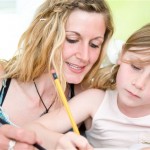

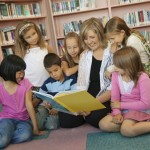

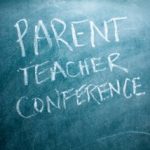
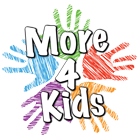
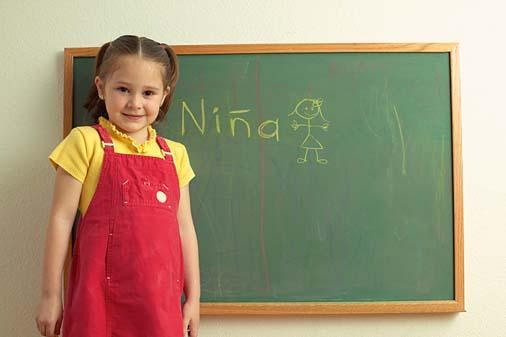


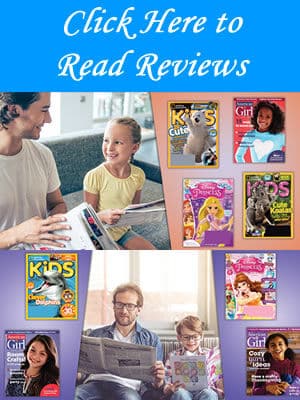
Word learning games can be an excellent way to ease your child into language. It’s amazing how easy (and cheap) it can be to develop simple educational activities for you child to help them grow in a way that can be fun :)